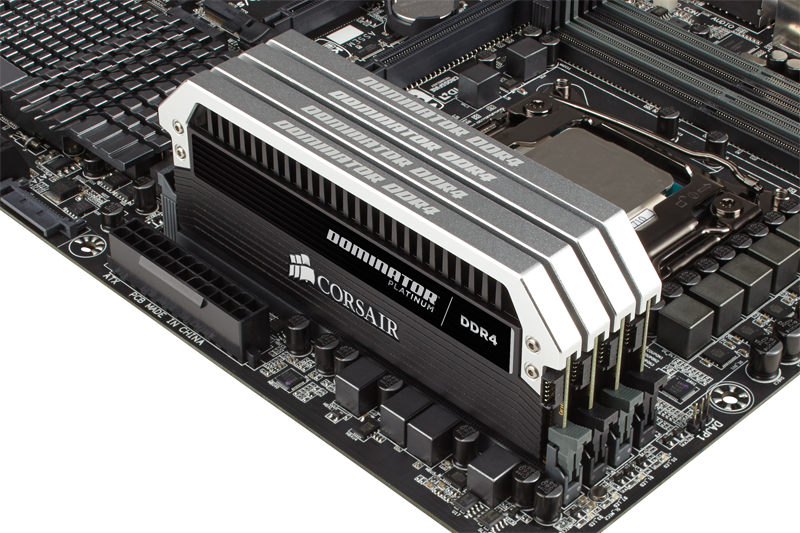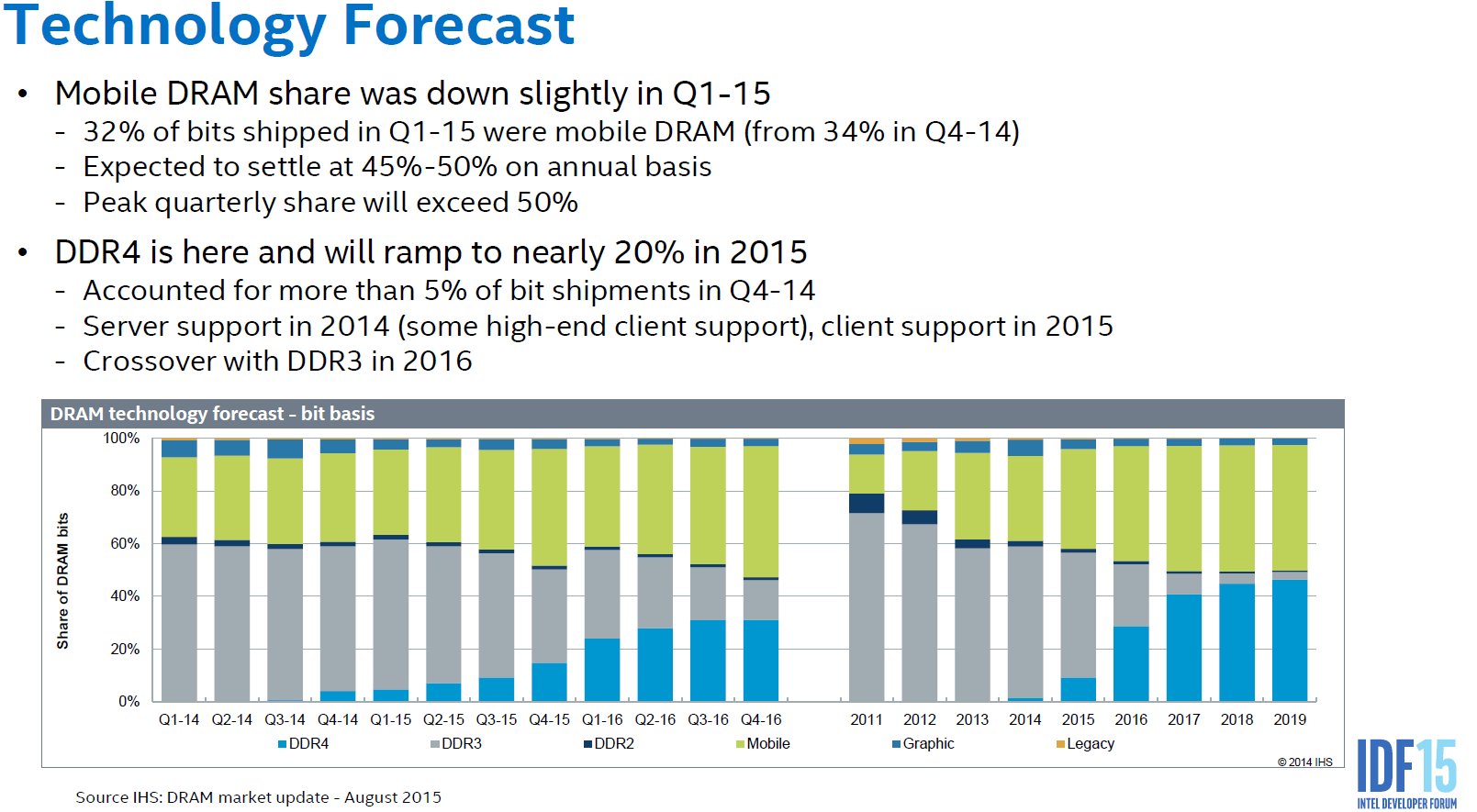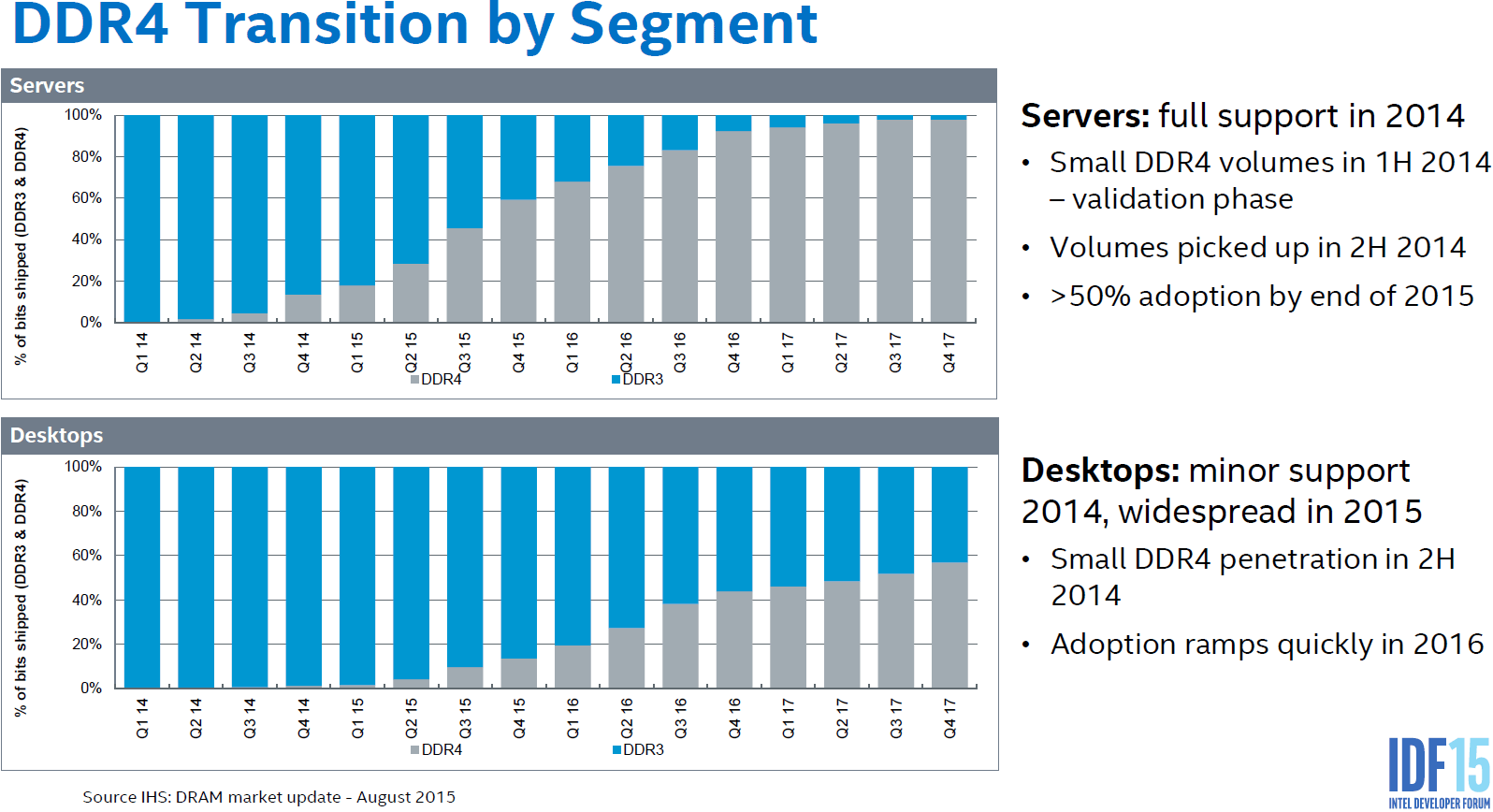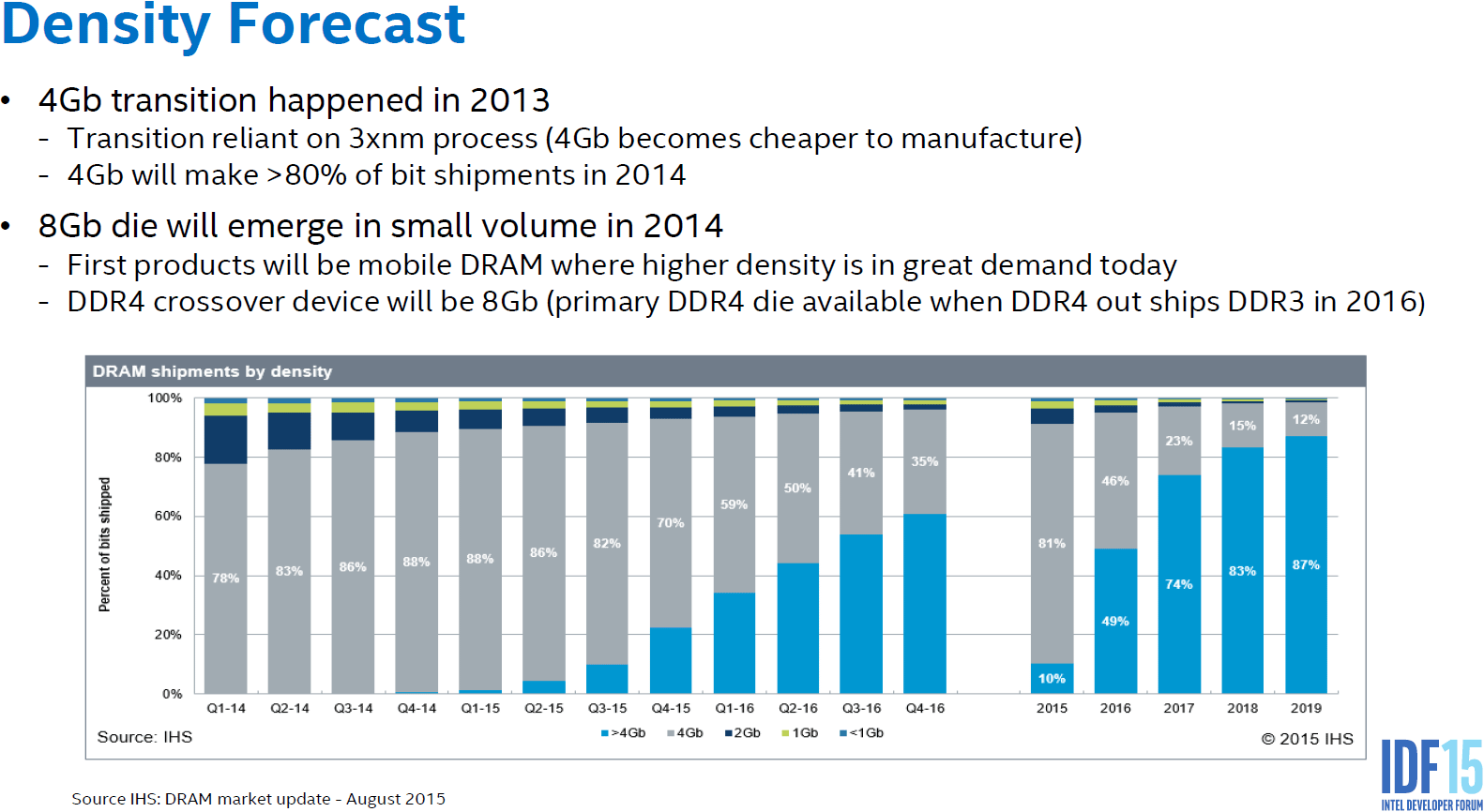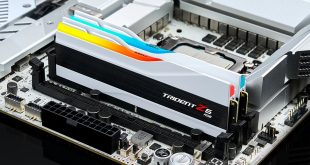Development of DDR4 dynamic random access memory took a long time. However, adoption of the new DRAM will be rather quick. Already next year the majority of servers and personal computers will rely on DDR4.
The DDR4 memory standard is currently supported by Intel Corp.’s server platforms as well as select enthusiast-class microprocessors, which means that only a handful of systems out there use the new type of memory. However, after Intel releases DDR4-supporting microprocessors for mainstream desktops as well as notebooks, the new memory will get significantly more popular. According to figures by IHS, which Intel Corp. revealed at the Intel Developer Forum, crossover between DDR3 and DDR4 memory production (i.e., when DRAM makers produce more DDR4 memory bits than DDR3 memory bits) will happen already next year.
Intel Corp. started to roll-out its high-end desktop and server platforms that support DDR4 memory in Q4 2014, which helped to drive demand for the new type of DRAM. In fact, DDR4 accounted for more than 5% of computer memory bit shipments in Q4 2014 thanks to Intel’s Xeon E5 v3 “Haswell-EP” processors introduced last fall.
The release of Intel “Skylake” processors will further help to increase adoption of DDR4 memory. According to IHS, around 15 per cent of DRAM bits produced in Q4 2015 will be based on the DDR4 standard.
Due to the fact that Intel Xeon processors are found inside 98 per cent of servers today, the ramp up of Intel’s latest platforms automatically drives adoption of DDR4 by servers. IHS believes that 60 per cent of server memory shipped in the fourth quarter of this year will be DDR4. By late 2016, DDR4 will account for over 90 per cent of server memory bits.
The adoption of DDR4 will be slower in desktops. In the first quarter of next year around 20 per cent of DRAM bits used in desktop PCs will be DDR4, but only on Q3 2017 the new type of memory will account for over 50 per cent of DRAM bits shipped for the form-factor.
Notebooks will adopt DDR4 memory faster than desktops, but slower than servers, which will increase demand for DDR4 in 2016 and will catalyze manufacturers to increase output of new DRAM chips. As a result, already in the second half of next year PCs will use more DDR4 memory bits than they will use DDR3 memory bits.
Transition to 8Gb memory chips – which many analysts consider to be largely tied to transition to DDR4 – will proceed rather rapidly starting the Q4 2015. Already next year 8Gb memory devices will account for 49 per cent of DRAM bits shipped. In 2019 they will account for 87 per cent, based on figures by IHS.
Discuss on our Facebook page, HERE.
KitGuru Says: If the forecast is correct, then PC makers will be willing to install more expensive DDR4 into their system. While DDR4 can bring a lot of benefits, its higher price and latencies are not exactly something that everyone is going to love, at least, not in 2015.
 KitGuru KitGuru.net – Tech News | Hardware News | Hardware Reviews | IOS | Mobile | Gaming | Graphics Cards
KitGuru KitGuru.net – Tech News | Hardware News | Hardware Reviews | IOS | Mobile | Gaming | Graphics Cards


